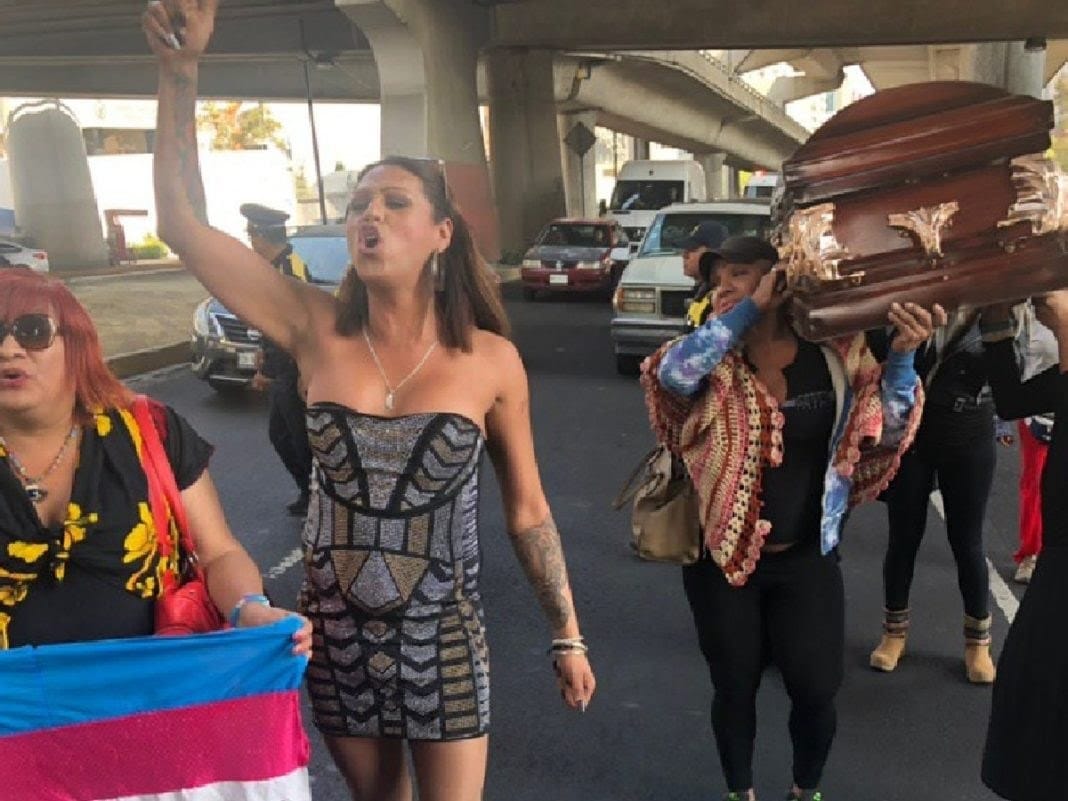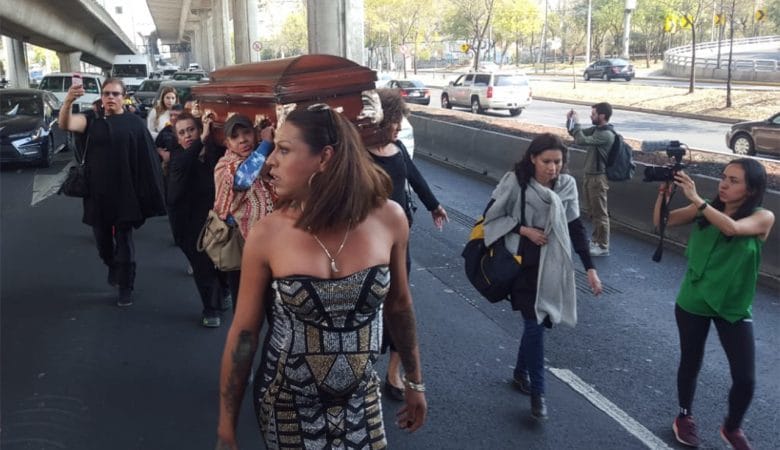Mexico Is The World’s Second Deadliest Country For Trans Women And These Activists Have Had Enough
Trans rights in Latin America are an uphill and often heroic battle. Conservative social norms and Catholicism, both of which are generally dogmatic when it comes to any sexual or gender diversity, has shaped Mexican society into a mostly CIS-gendered, patriarchy-led society. However, there are promising signs that long-lasting change could be near and that Mexican culture could shift the tide towards a legal and everyday framework in which rights are respected.
Trans women in particular are vulnerable to discrimination, verbal abuse and physical violence.
Mexico is almost as dangerous as Brazil for trans women.

As the Associated Press reports: “Mexico has become the world’s second deadliest country after Brazil for transgender people, with 261 transgender women slain in 2013-2018, according to a recent study by the LGBTQ rights group Letra S.”
This is just appaling, as is the fact that most crimes go unpunished and that corruption in the Kaflaesque Mexican bureaucracy often leads to even more instances of abuse and trauma for the victims. The Associated Press reported late last year: “Like most crime in Mexico, nearly all such slayings go unsolved and unpunished — less than 3% of the killings of LGBTQ members have resulted in convictions since 2013. So transgender community leaders and activists are largely on their own in pursuing long-denied justice.” And remember there is no peace without justice.
Trans activists in Mexico City shut down the city’s busiest road to protest the killing of a community member.

El Periférico is one of the busiest roads in the world. Around 20 trans activists blocked it while carrying a coffin. They were protesting the killing of Paola Buenrostro in 2016. The authorities, activists claim, have done close to nothing to solve the case. They blocked El Periférico after delivering documents to the National Human Rights Commission. As CE Noticias Financieras notes, the letter states that: “It accuses the Attorney General’s Office of Mexico City (now the Prosecutor’s Office) of not recognizing the gender identity of the victim and Kenya Citlali Cuevas Fuentes, an indirect victim of the crime, as well as of discriminating them against them for being trans women and sex workers. They also noted that they failed to investigate with a gender perspective, negligence in the imputation within the initial hearing, raising evidence and chain of custody, among other misconduct.”
Paola’s friend, the aforementioned Kenya Cuevas, is leading the protest. She was there when Kenya was shot and she was close to experiencing the same fatal fate. Even though Kenya was actually there the authorities did not validate her first-hand testimony. The case turned cold and no one has been blamed for the transfeminicide.
Kenya Cuevas herself got into the coffin to stand for murdered trans and CIS women.

Sometimes the best way to fight for a cause is to be daring and doing things that can have a strong visual and symbolic impact. That is what trans rights activist Kenya Cuevas did by laying inside a coffin in broad daylight. It was a brutal image to remember. Paola’s legacy also lives on through a house for trans women in need set up under her name: this house helps trans women escape drugs and sex work that they might not want to engage in for any other reason other than survival. Kenya’s message while blocking El Peri (as the freeway is commonly known) was clear: “We are tired of being unseen, tired of being violent, tired of not being given us opportunities to succeed, we also support our families. We too are awaited by our relatives and no one cares”. We hear you, reinas hermosas!
The protest was successful and the women were granted a meeting with the Attorney’s office in Mexico City.

The protest only lasted ten minutes, but in a road as busy as El Periférico that feels like an eternity. Things got tense between drivers and activists. The police arrived and escorted the trans women to meet with Mexico City’s Attorney General Ernestina Godoy. If we measure activism by the success of their actions in terms of real political change, which can amount to having your voice heard, then we can argue that these trans women made a breakthrough that would probably not have been made without altering the public order.
And that’s what some people, mainly dudes but also some CIS women, do not understand: that trans women and feminists have to resort to methods that might be deemed as extreme, such as painting public monuments and stopping traffic. In the case of Paola’s murder, almost four years went by without the authorities being able or willing to have any developments on the case. Without becoming a real threat and momentarily disrupting traffic flow in Mexico City’s main artery, perhaps they would have never been heard.




